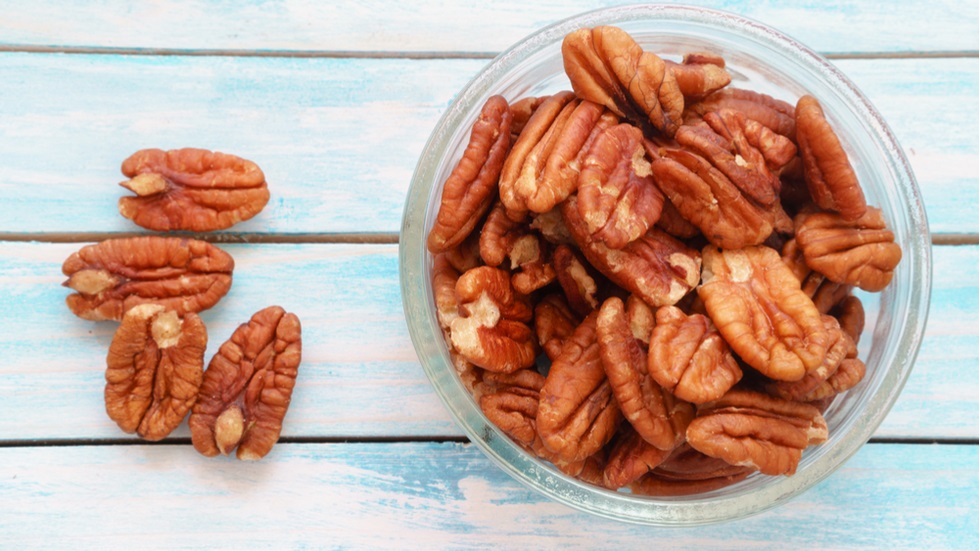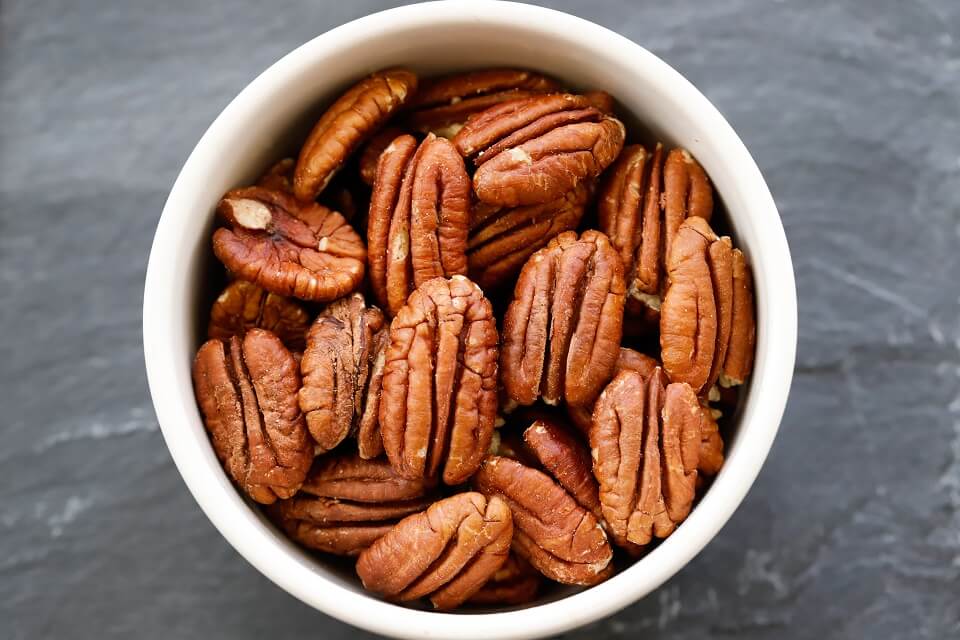Pecans aren’t just a delicious addition to pies and salads—they’re also a powerhouse of nutrition. Packed with heart-healthy fats, fiber, vitamins, and antioxidants, these buttery nuts offer more than just flavor. Whether you’re snacking on a handful or using them in your favorite recipes, pecans can support your health in many ways.
In this post, we’ll explore the top health benefits of pecans, how to incorporate them into your diet, and when you might want to be cautious.
🥜 What Are Pecans?
Pecans are the edible seeds of the Carya illinoinensis tree, native to North America. They belong to the same family as walnuts and hickory nuts and are well known for their rich, slightly sweet flavor and smooth texture.
Pecans can be eaten raw, roasted, or incorporated into both sweet and savory dishes.
✅ Health Benefits of Pecans
1. Heart Health
Pecans are rich in monounsaturated fats, which can help lower LDL (bad) cholesterol levels and support overall cardiovascular health. They also contain plant sterols, compounds that further reduce cholesterol absorption in the body.
💡 Studies suggest that regular nut consumption is associated with a reduced risk of heart disease.
2. Antioxidant Power
Pecans are among the top nuts for antioxidant content, especially vitamin E, ellagic acid, and flavonoids, which help protect cells from oxidative damage and may reduce inflammation and the risk of chronic diseases.
3. Supports Brain Function
Thanks to their high content of healthy fats, B vitamins, and antioxidants, pecans may support cognitive health, improve memory, and help protect against neurodegenerative diseases.
4. Weight Management (in Moderation)
Despite being calorie-dense, pecans may help with satiety due to their protein, fiber, and healthy fat content—helping you feel fuller for longer and reducing overeating.
5. Blood Sugar Regulation
Pecans have a low glycemic index and are rich in fiber, which slows the absorption of sugar into the bloodstream—making them a good snack option for people with type 2 diabetes or insulin resistance.
6. Rich in Vitamins and Minerals
Pecans provide:
- Magnesium – for nerve and muscle function
- Zinc – for immunity and healing
- Manganese – for metabolism and bone development
- Vitamin A and E – for skin and eye health
🥗 How to Add Pecans to Your Diet
- Snacks: Eat a small handful raw or roasted (unsalted)
- Salads: Add chopped pecans for crunch and flavor
- Oatmeal & Yogurt: Sprinkle on top for texture and nutrients
- Baking: Use in muffins, breads, or healthier versions of pecan pie
- Nut Butters: Try pecan butter as an alternative to peanut butter
✅ Recommended serving: About 1 ounce (28g) or 15–20 pecan halves per day
⚠️ Contraindications and Cautions
While pecans are generally healthy, there are some situations to watch for:
1. Nut Allergies
Pecans are tree nuts, and allergic reactions can range from mild to life-threatening (anaphylaxis). If you have any nut allergy, avoid pecans unless cleared by a medical professional.
2. High Calorie Content
Pecans are calorie-dense—about 200 calories per ounce—so portion control is key, especially if you’re trying to lose weight.
3. Oxalate Content
Pecans contain oxalates, which in high amounts can contribute to kidney stones in susceptible individuals.
4. Salted or Sugar-Coated Varieties
Avoid overly salted or candied pecans, which can contribute to high sodium and sugar intake, reducing their overall health benefits.
👶 Can Kids and Pregnant Women Eat Pecans?
Yes—if there’s no nut allergy. In fact, pecans are:
- Safe for pregnancy: They provide folate, healthy fats, and protein
- Great for kids: Offer energy and nutrients, but serve them chopped or as nut butter to avoid choking hazards

Pecans are more than just tasty—they’re truly nutritious. They support heart, brain, and metabolic health and provide key nutrients. When eaten in moderation as part of a balanced diet, pecans can be a delicious way to improve your overall well-being.
Quick Recap:
- Eat: Raw, roasted, or added to meals/snacks
- Best for: Heart health, antioxidants, brain support
- Avoid if: You have a nut allergy or are prone to kidney stones

